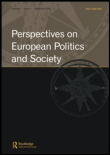Europe, Discourse, and Institutions: Challenging the Mainstream in European Studies
Special Issue of Perspectives on European Politics and Society, Vol. 14, Issue 2 (2013)
Edited by Cristian Niţoiu & Nikola Tomić
Foreign policy analysis (FPA) in a classical sense entails focusing on agents (individuals or groups of individuals). In the case of the European Union (EU), FPA becomes more problematic. Firstly, the question arises of what a foreign policy of the EU really means. This article defines EU foreign policy in a wider sense, namely along the lines of what is known as EU’s external action. It focuses however on the security aspect of the EU’s external action – the Common Foreign and Security Policy (CFSP) and its defence dimension, the Common Security and Defence Policy (CSDP). Furthermore, a problem of identifying agents arises in the EU setting in large part because of the complex institutional setup of the CFSP/CSDP. Although final decisions are made at the level of the Council, the policy itself is drafted and prepared at lower levels of policy-making (working parties, committees and agencies) based in Brussels. This article proposes a discursive institutionalist model of analysis, applicable to any organization of the policy process. After presenting the model’s ontological and epistemological positions, as well as theoretical underpinnings, the article elaborates on the different levels of information processing and meaning construction by actors and their role in setting the overall foreign policy discourse by shaping the coordinative discourses during this early phase of the policy-making process.
